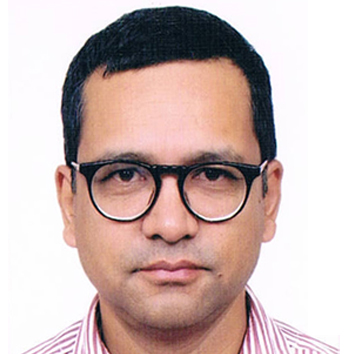Columns
We need a research funding council
It should be state funded and functionally autonomous of political and bureaucratic interference.
Pratyoush Onta
For about 50 years now, Nepali social scientists have been demanding that we should have an entity that funds social science research in the country. The generation of Nepali social scientists who came of age in the early 1970s was the first to make this demand. I suspect that their call was influenced by what they had seen and heard in other countries regarding how such funding councils had enabled research in general. Some of them were also familiar with the fact that a few of their videshi contemporaries had come to do research in Nepal with financial support from such research councils.
In this first part of a two-column effort, I highlight two videshi social science research council models and the research highways related to Nepal they have enabled. Thinking about these two types will help us to discuss what kind of a funding council we might be able to operate in Nepal.
American SSRC
The first effort at establishing a Social Science Research Council (SSRC) was realised in the United States in 1923. This SSRC with its headquarters in New York City was established through the joint effort of academics representing seven professional organisations of political scientists, economists, statisticians, sociologists, anthropologists, historians and psychologists. This was a non-governmental initiative and much of its funding in its initial and later years has come from philanthropic foundations. Its work is overseen by a board of directors and several dozen staff run the organisation on a daily basis.
This SSRC has done various types of work during its 100-year existence. It has worked closely with the American Council of Learned Societies (founded in 1919) which prioritises scholarship in the humanities. Together they have set various research priorities. Both organisations were important players in the development of “area studies” in the US during the post-World War II period. This SSRC has provided fellowships to many thousand doctoral students. Thirty years ago, I got one of those fellowships and it enabled me to do research on Gurkha history at the British Library in London. A Nepali student enrolled in a US university was awarded a similar dissertation grant in 2022.
This SSRC has promoted research on many different themes over the past century including the now much denounced modernisation theory. In the more recent past, it has supported inquiries about the state of research capacity in different parts of the world and sponsored the production of reference works. For instance, in the year 2000, it commissioned anthropologist Mary Des Chene to produce a volume in Nepali about key social science concepts and themes. This eventually resulted in the 2004 book co-edited by Des Chene and myself, Nepalko Sandarbhama Samajsastriya Chintan (Social Science Thinking in the Context of Nepal). Many young readers have found it to be an accessible reference work. Similarly, in 2001, the SSRC commissioned a report on the existing research capacity in the social sciences in India, Pakistan, Bangladesh, Sri Lanka and Nepal. The section on Nepal was written by political scientist Krishna Hachhethu of Tribhuvan University and its two versions were published in the Economic and Political Weekly and Contributions to Nepalese Studies in 2002. The overall report written by Partha Chatterjee was published the same year as Social Science Research Capacity in South Asia. This report helped us to understand our capacity for social science research in comparison with our South Asian neighbours.
Enabling individual students to do their doctoral research and promoting trans-regional thematic research programmes seem to be the primary focus of this SSRC these days. It is celebrating its centennial this year with various programmes including a lecture series and a campaign to raise 100 million dollars to support its future work.
UK councils
In contrast to the non-governmental privately funded SSRC in the US, the SSRC in the United Kingdom was founded in 1965 as a state-funded public entity. During the 1960s and the 1970s, the most important multi-year project related to Nepal that was executed with its support was one called Social Change in Rural Nepal. It was coordinated by Christoph von Fürer-Haimendorf, professor of anthropology at the School of Oriental and African Studies. This grant partially supported the professor’s research in Nepal that resulted in his 1975 book Himalayan Traders: Life in Highland Nepal. It also supported the work by several of his colleagues and students including the research of Patricia Caplan that resulted in her 1972 book Priests and Cobblers: A Study of Social Change in a Hindu Village in Western Nepal. It also supported the dissertation research of Nicholas J Allen on the myths and oral traditions of the Thulung Rais (the edited version of this 1976 Oxford University dissertation was published in 2012 as Miyapma: Traditional Narratives of the Thulung Rai). This project helped to broaden our anthropological understanding of Nepali society.
Following a review done by the Margaret Thatcher-led government, the original remit of the British SSRC was broadened and its name changed to Economic and Social Research Council in 1983. Currently, there are six other similar disciplinary councils in the UK. They are all part of the entity UK Research and Innovation (UKRI). In British parlance, these entities are known as “non departmental public bodies” which means they are “public sector organisations that have a role in the process of national government but are not part of a government department.” Each council is headed by an executive chair and consists of various members drawn from academia and other sectors of society. Together they report to the executive committee of the UKRI which itself reports to the UKRI board consisting of up to 15 members appointed by the UK’s Department for Science, Innovation and Technology.
UK-based academics have done and are doing various research on themes related to Nepal in recent years with funding from these councils, some of them in collaboration with colleagues based in Nepali universities and research institutions. For instance, the project After the Earth’s Violent Sway: The Tangible and Intangible Legacies of a Natural Disaster was supported by a multi-year grant from the Arts and Humanities Research Council to the School of Oriental and African Studies. Michael Hutt was its primary coordinator, but many other veteran Nepal scholars including Mark Liechty, Stefanie Lotter, John Whelpton and Jeevan Baniya were also involved in this project. Many articles and the 2021 edited volume Epicentre to Aftermath: Rebuilding and Remembering in the Wake of Nepal’s Earthquakes have resulted from this project.
The UK councils make both theme-specific and open calls for applications for research support. Some of them also support training of PhD students through doctoral training partnerships involving various consortia of universities.
Given that we don’t have strong professional organisations of academics and rich philanthropic foundations, the American SSRC model is not suitable for us. What we need is a UK type state-funded council that is functionally autonomous of political and bureaucratic interference. Ideally, its work remit and procedures should be controlled by a college of academics. How might such a body be governed, what kinds of research it might support and how, will be discussed in my next column.




 21.45°C Kathmandu
21.45°C Kathmandu















